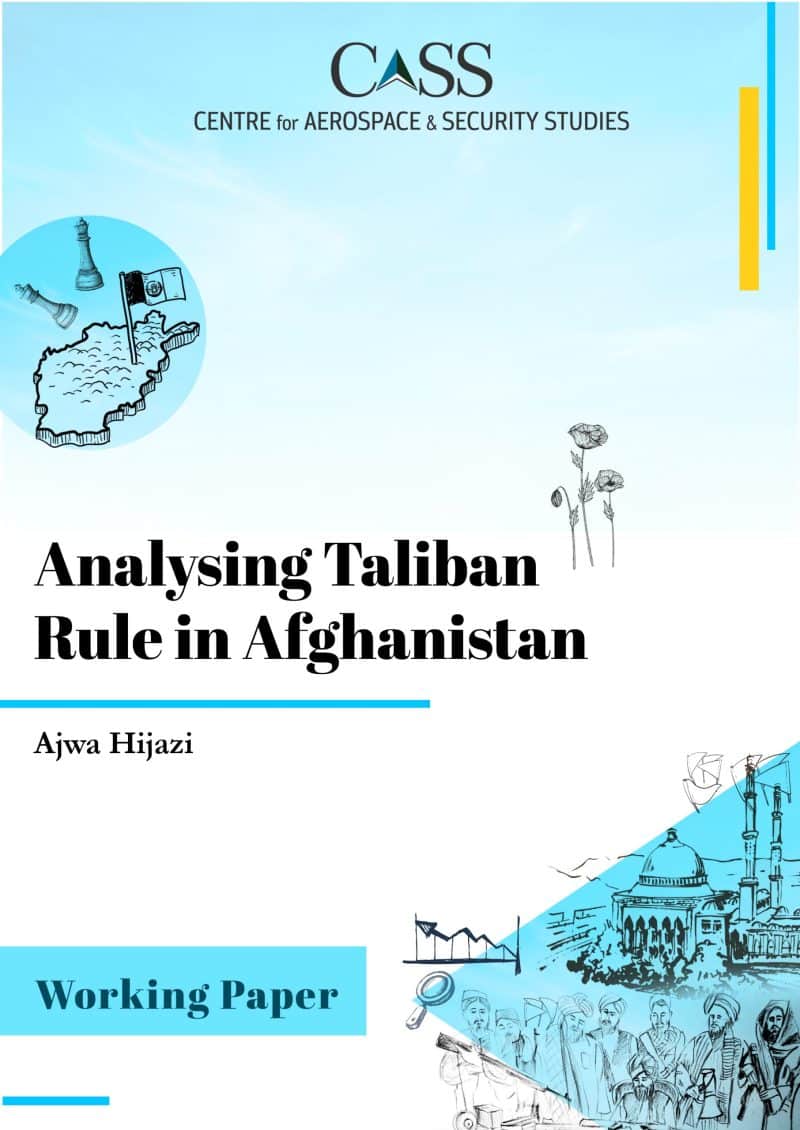The fall of Kabul in August 2021 marked a pivotal moment in Afghanistan’s history, signifying the withdrawal of foreign troops and the Taliban’s return as the de facto rulers of the country. Their resurgence prompted global apprehensions about their capacity to govern effectively and sustainably. Adopting a qualitative research approach, this paper draws on secondary sources to analyse the Taliban’s performance across key domains: economy, politics, civil liberties, security, and diplomacy, over the past three years. The analysis highlights that while the Taliban have managed to sustain their government despite a lack of international recognition and have taken steps to revive Afghanistan’s struggling economy, their governance has been marred by significant shortcomings in upholding civil liberties. The paper argues that the future sustainability of the Taliban regime hinges on four critical factors: ensuring internal security, addressing humanitarian needs of the population, consolidating control over the country, and engaging diplomatically to achieve international recognition.

Share this article

Golden Dome: Capabilities and Constraints
In an era of novel threats, a layered defensive shield is once again at the centre of US strategy. The announcement of the Golden Dome by President Trump shortly after assuming office has given rise to new expectations, questions, and concerns regarding the project.
The capability is envisioned as a comprehensive missile shield for the continental United States (CONUS) against ballistic missiles, hypersonic vehicles, cruise missiles, and UAVs. Conceived as a multi-tiered system, it aims to integrate existing missile defences with new space-based platforms. The layered system, combining land, sea and space-based sensors

Trump’s Coercive Diplomacy: America’s Harder Turn
President Donald Trump renamed the Department of Defense (DOD) to the Department of War in September 2025. Then, just a month later, he threatened at least three countries with war. Trump’s economic war was waged on most states, in the form of tariffs, from the day he assumed office, but the threats and signalling toward an armed confrontation have been growing more frequent and explicit.

Do India- Bangladesh Relations Signal a New Strategic Front?
Amidst transforming regional security dynamics, India reinforced its eastern flank by establishing three fully operational military stations at strategic points around the ‘Siliguri Corridor’ near the India-Bangladesh border. The new bases include the Lachit Borphukan Military Station near Dhubri in Assam along with two forward bases at Chopra in West Bengal and Kishanganj in Bihar. Indian Army also reviews a fourth station in Mizoram as part of extended defence arc around the Siliguri corridor. Amidst deteriorating ties with Bangladesh, India’s fortification of its eastern

